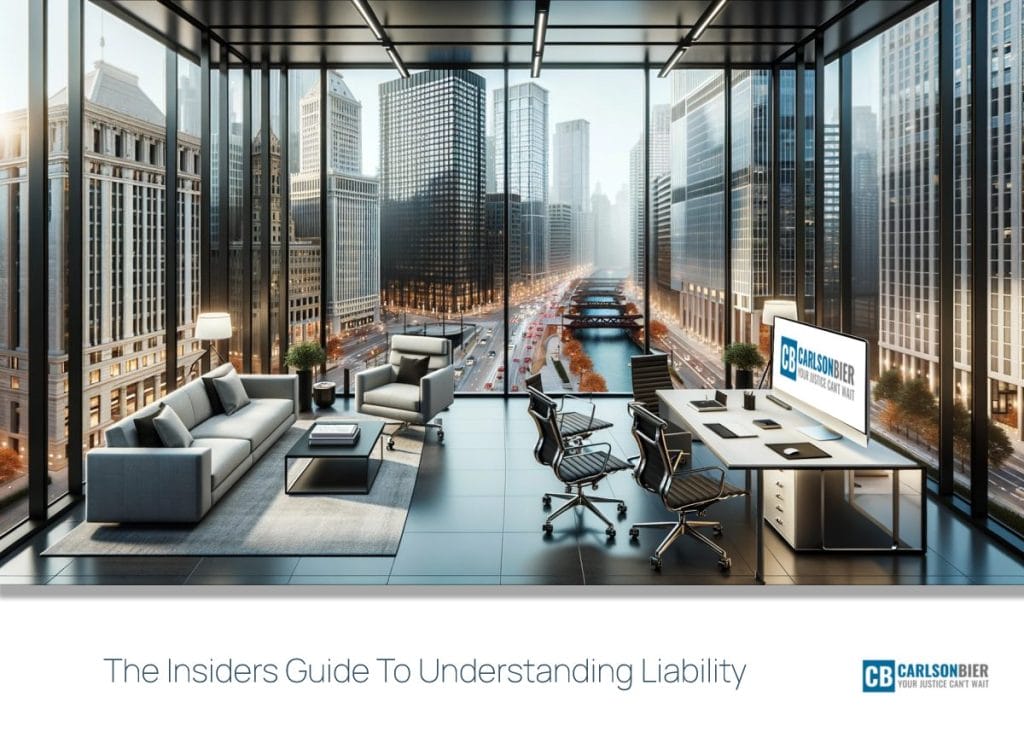Understanding Liability: A Comprehensive Guide
Life can be unpredictable at times. We do our best to stay precautious but, every now and then, accidents happen. An accident can have a dramatic impact on your life, physically, emotionally, and financially. Nevertheless, if the accident was caused by someone else’s negligence, you could be entitled to compensation by seeking legal recourse. The Law Office of Carlson Bier Associates, a renowned personal injury law firm in Chicago, presents to you the intricacies of understanding liability in personal injury claims.
What is Liability?
In legal terms, liability refers to the responsibility one party has to another in case of harm or loss, often due to negligent or wrongful actions. In short, it’s about determining who is at fault and therefore accountable for the damage. To establish liability, three key factors must be present: duty of care, breach of duty, and harm resulting from that breach.
Understanding Duty of Care
The concept of ‘duty of care’ is at the core of liability. It signifies a legal obligation imposed on an individual to adhere to a standard of reasonable care while carrying out any act that could potentially harm others. This duty varies significantly depending on the relationship between the parties involved.
– For instance, motorists have a legal obligation to drive with care and attention to avoid causing accidents.
– Employers have a duty of care towards their employees, ensuring they have a safe working environment.
– Property owners owe a duty of care to anyone visiting their premises, ensuring the site is safe from harmful conditions.
Duty of Care Breach
Establishing a breach of duty of care is pivotal to proving liability in a personal injury claim. It’s about demonstrating that the defendant did not meet the expected standards of care and contributed to the harm experienced by the plaintiff. This might involve examining a defendant’s actions, behaviors, or choices leading up to the event. Evidence might include eyewitness testimonies, photographs, or surveillance footage.
Connecting Breach and Harm
However, it is not enough to prove that the defendant breached their duty of care. There has to be a direct link established between their actions (or lack thereof) and the harm that occurred. The plaintiff must provide evidence of the harm they have experienced, whether physical injury, emotional suffering, property damage, or financial loss.
Determining the Degree of Liability
In some instances, more than one party may be liable for an accident. The State of Illinois follows the concept of comparative negligence. Under this principle, each party’s degree of fault determines their percentage of liability for the damage. This, in turn, can affect the sum compensated to the victim. Documenting the circumstances of the incident accurately is crucial to this process.
The Role of Insurance in Liability
Insurance is an essential aspect of understanding liability, particularly where personal injury claims are concerned. Most personal injury claims are settled by the insurance provider of the party at fault. Nonetheless, this doesn’t negate the necessity of establishing liability, as insurance firms often require convincing proof before they agree to settle a claim.
For more insight about the liability laws in the State of Illinois, consider visiting Illinois Courts.
Seeking Professional Legal Assistance
Navigating liability isn’t straightforward, and a successful claim often involves detailed investigation and analysis. For this reason, consider seeking the assistance of a personal injury law firm, like The Law Office of Carlson Bier Associates. You stand the best chance of securing the maximum compensation with professional legal representation.
Final Thoughts on Understanding Liability
Understanding liability is a significant step in pursuing a personal injury claim. The Law Office of Carlson Bier Associates hopes that this insight sheds light on the intricacies of this critical legal concept. We strongly believe that there should be justice for people who have suffered due to others’ negligence, and we are committed to helping clients navigate these tough times with dignity and strength.

